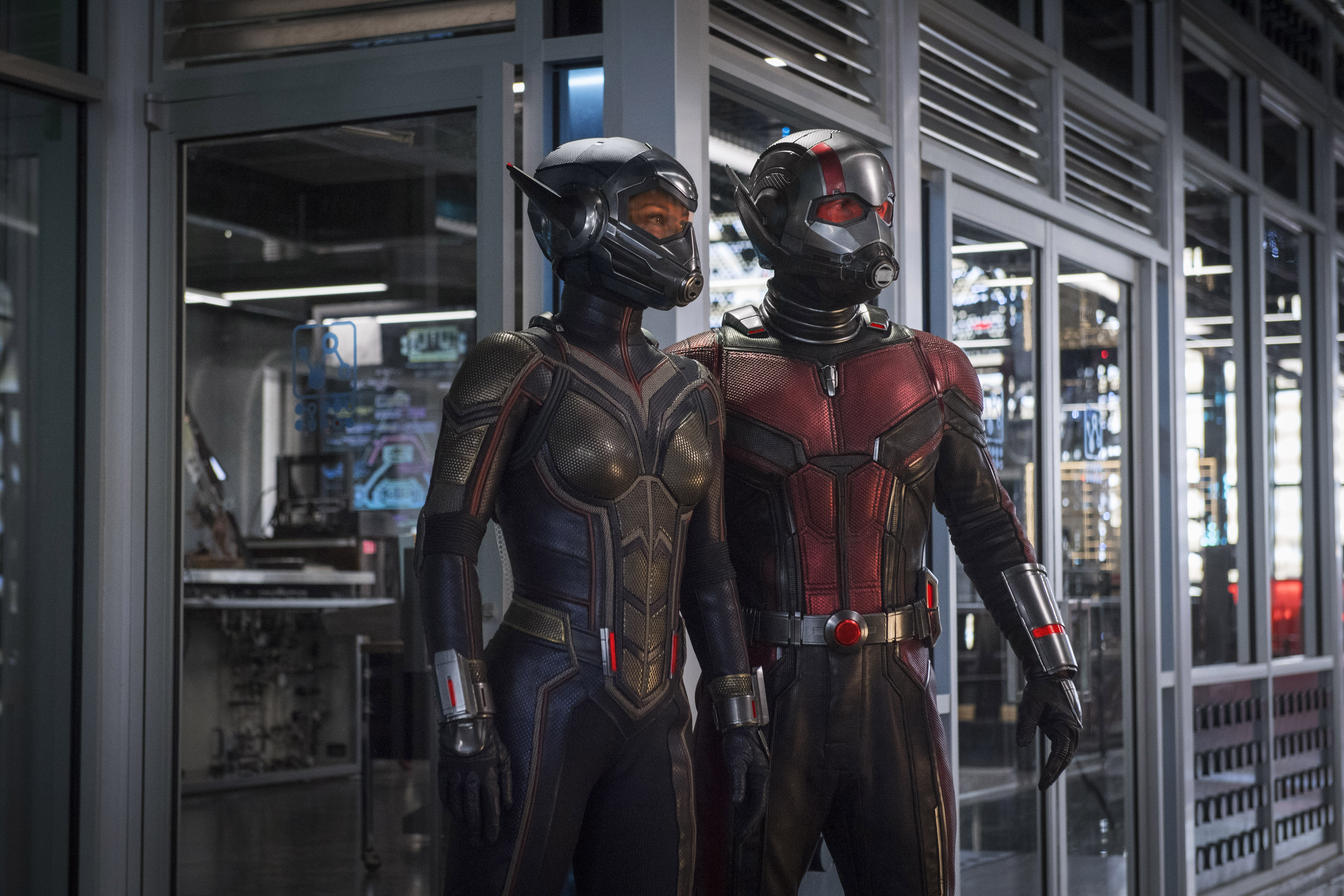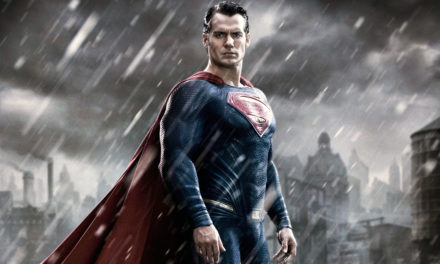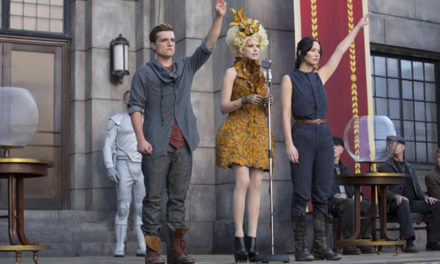As is usually the case with movie translations of novels, I anticipated “Cloud Atlas” would be either unbelievably mind-blowing or incredibly disappointing. As it turns out, that expectation was totally wrong – “Cloud Atlas” contained such a mixture of amazing elements and inescapable problems that I’m still not entirely sure how I feel about it. One thing that’s for sure is that this movie can’t be explained in a 10-word summary. There are six different protagonists, six different storylines and dozens of connections between said storylines.
These kinds of crazy complications and connections are precisely what made the book (written by David Mitchell in 2004) shine. In book form, the story was Mitchell’s to manipulate: he had over 500 pages in which to explain the intricacies of each of these stories, each of these worlds, each of these characters. However, that entire chronicle has trouble translating into movie form.
“Cloud Atlas” attempts to compress six full-length storylines into one movie. They’re all fascinating tales – there’s not a bad apple in the bunch, not a single story that’s not up to par with the rest of them. Every single one of these storylines would make a great movie in its own right. But having such a massive amount of information coming at the audience – six times the norm – means that the complexities of the plot can’t be explored quite as intricately as they should be in order to really resonate with the viewer. A storyline that could sufficiently fill the span of a full-length two-hour film is instead compacted into a sixth of that time.
That said, the movie has a lot going for it. It’s directed by Lana and Andy Wachowski (“The Matrix”) and Tom Tykwer (“Run Lola Run”) and features an amazing assortment of performers: Tom Hanks, Halle Berry, Hugh Grant, Susan Sarandon, Jim Broadbent (“Harry Potter and the Half-Blood Prince”), Hugo Weaving (“The Lord of the Rings” trilogy) and Jim Sturgess (“Across the Universe”), to name a few.
“Cloud Atlas” tracks this cast list across five centuries and three continents: Adam Ewing (Sturgess) struggles to get home to San Francisco, Robert Frobisher (Ben Whishaw, “Bright Star”) apprentices under a brilliant composer, Luisa Rey (Berry) investigates an unsafe nuclear power plant, Timothy Cavendish (Broadbent) tries to escape a retirement home, Sonmi-451 (Doona Bae) breaks out of her role as a brainwashed waitress in a futuristic Seoul, and Zachry (Hanks) is haunted by a devilish creature in a post-apocalyptic wasteland.
They’re all intriguing stories on their own. So how do they all unite? That’s the real struggle of the film. It tries gallantly to bring all these episodes together.
And it does to an extent – it shows that each story has a subtle connection to the previous story (Robert stumbles across Adam’s diary; Luisa listens to Robert’s composition, etc.), and the actors pop up in other storylines. The notion of having actors reappear throughout the film is valiant, and sometimes it’s done very well – for instance, Tom Hanks’ additional manifestations as a nuclear physicist, a malicious doctor and a hotel clerk pepper the story just enough to be cool but not too much to be distracting.
But to drive home the overarching theme that our lives are inescapably connected to others, the film sets the actors up in a wide variety of roles – some of which they have no business playing.
Halle Berry appears as a white Jewish woman in the 1930s. Jim Sturgess plays a Korean commander. Though the film tries very hard to make these actors’ appearances as members of different races seem legitimate, the viewer still knows that Halle Berry is not white and Jim Sturgess is not Asian, and in the end, the race-crossing just makes an otherwise-fabulous storyline lose its credibility.
Similarly, the directors attempt to translate many of the book’s elements into movie format to no avail. In Hanks’ post-apocalyptic storyline, for example, he and Berry (now appearing as one of a limited number of technologically-advanced people) speak in a weird, accented, archaic-sounding language. They say “yea” and “nay” instead of “yes” and “no” and “true-true” in place of “truth.” Though in the book, this manner of speaking may demonstrate the evolution of language, it just comes across as incomprehensible and awkward in the film.
To its credit, “Cloud Atlas” does have a lot of redeeming factors: its cast, for one.The directing and cinematography is beautiful; the larger-than-life portrayal of futuristic Seoul (New Seoul, the characters call it) is particularly noteworthy. And the sheer novelty of the plot is a major win in itself. But the problem is that the directors milk that very novelty for all it’s worth. In a film of this proportion, every single detail has such an incredible amount of significance that watching “Cloud Atlas” is an event.
Everything happens on such a large scale that it’s exhausting to try to grasp all the connections and all the themes. There were multiple occasions when I was sure the movie’s end was imminent – these segments were defined by intense, epic scenes cutting back and forth between the storylines, while a narration explicitly stated the moral of the story. Eventually, those dramatic moments happened so often that they lost their meaning.
“Our lives are not our own,” says Sonmi-451 on several instances. “We are bound to others, past and present. And by each crime and every kindness, we birth our future.”
Sure, it’s a cool idea. But the film drives home that idea by aiming for moments of “Wow, that’s cool,” rather than moments that tug at the heartstrings. And even in the most tragic, heart-wrenching scenes, the moment ended before the full emotional effect could be felt. Still, the film is at its strongest in its rawest, least pretentious moments.
For instance, when Adam tells his father-in-law about his decision to pursue a new livelihood, the father-in-law responds, “Whatever you do in your life, it will amount to nothing more than a droplet in a limitless ocean.”
Adam gazes resolutely at the man and asks, “Yet, what is any ocean but a multitude of drops?” That is the kind of moment that “Cloud Atlas” should have focused on. It could have celebrated those individual drops – the different stories which define the film. Instead, the movie states and restates that these vignettes are only part of a bigger, universal story. Ultimately, it seems that the movie is more interested in the ocean than it is in the drops.
– By Emelia Fredlick
The Emory Wheel was founded in 1919 and is currently the only independent, student-run newspaper of Emory University. The Wheel publishes weekly on Wednesdays during the academic year, except during University holidays and scheduled publication intermissions.
The Wheel is financially and editorially independent from the University. All of its content is generated by the Wheel’s more than 100 student staff members and contributing writers, and its printing costs are covered by profits from self-generated advertising sales.





